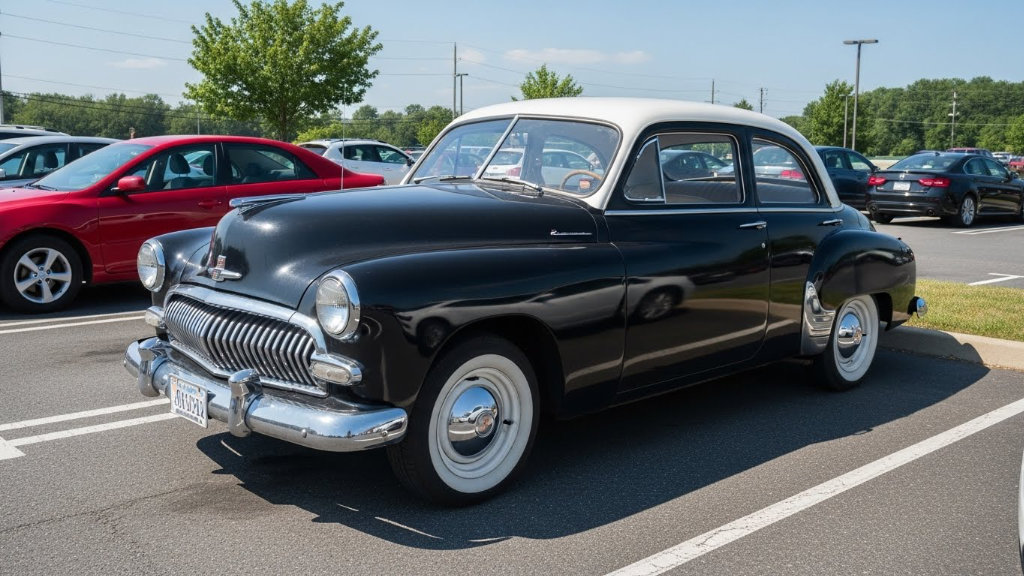Minimum Driving Age
In Indiana, teens can get a learner’s permit as early as age 15 — but only if they’re enrolled in a state-approved driver education course. Without a driver’s ed course, the minimum age to apply is 16. A full, unrestricted driver’s license becomes available at age 21. Before that, drivers are issued a probationary license with certain restrictions, particularly for those under 18.
Learner’s Permit Rules
Indiana’s learner’s permit is valid for supervised driving while gaining experience behind the wheel. Permit holders under 18 must complete at least 50 hours of supervised driving practice, including 10 hours at night, logged and signed by a parent or guardian. Supervision must be provided by a licensed driver at least 25 years old (or 21 if the person is a relative). The learner’s permit must be held for at least 180 days before the driver can take a skills exam and apply for a probationary license.
More info: Indiana BMV – Learner’s Permit
License Types in Indiana
Indiana offers several license classes:
- Operator’s License (Standard License) – Available to drivers age 21 and up.
- Probationary License – Issued to drivers under 21. Comes with restrictions such as no driving between 10 p.m. and 5 a.m. (except for school/work/religious reasons) during the first 180 days.
- Commercial Driver’s License (CDL) – Class A, B, and C are available, each allowing operation of different types of commercial vehicles.
- Motorcycle Endorsement – Requires a motorcycle safety course or passing a knowledge and skills test, plus vision screening.
More info: Indiana BMV – License Types
Required Documents for Driving
To apply for a permit or license in Indiana, drivers must present documents proving:
- Identity (e.g., U.S. birth certificate or passport)
- Social Security Number
- Lawful status (for non-citizens)
- Two documents proving Indiana residency (e.g., utility bill, bank statement)
These are also required to obtain a Real ID, which will be needed for boarding domestic flights starting May 2025.
Document list: Real ID Document Checklist
Seatbelt and Car Seat Laws
Indiana enforces a primary seatbelt law, meaning law enforcement can pull drivers over solely for not wearing a seatbelt. All drivers and passengers must buckle up, regardless of seating position.
- Children under 8 must be properly secured in a federally approved car seat or booster seat.
- Children aged 8–16 must wear a seatbelt at all times, even in the back seat.
- Violations can result in fines and points on a driver’s record.
Learn more: Indiana State Police – Child Restraints
Cell Phone and Distracted Driving Rules
Indiana has a hands-free driving law. Drivers are not allowed to hold or operate a cell phone while driving unless it’s being used with hands-free technology (like Bluetooth or a mounted holder).
- Texting while driving is explicitly banned.
- Drivers under 21 are prohibited from using any mobile devices while driving, even hands-free.
- Violations can lead to fines and possible points on the driver’s record.
Details: Indiana Hands-Free Law
DUI/DWI Thresholds and Penalties
In Indiana, driving with a blood alcohol content (BAC) of 0.08% or higher is illegal. Drivers under 21 are held to a stricter limit of 0.02%.
Penalties for a first DUI offense may include:
- Up to 60 days in jail
- Up to $500 in fines (or more if BAC is significantly elevated)
- License suspension up to 2 years
- Mandatory substance abuse education or treatment
Refusing to take a BAC test leads to an automatic license suspension under Indiana’s implied consent law.
More info: Indiana DUI Laws
Speed Limits
Indiana speed limits are clearly marked, but these are the standard defaults when signs are not posted:
- Urban residential areas: 30 mph
- Rural roads: 55 mph
- Interstate highways: Up to 70 mph for passenger vehicles
- School zones: 25 mph (when children are present)
Fines increase significantly in construction zones or for excessive speeding.
Reference: Indiana Code Title 9
Road Rage and Reckless Driving Laws
Indiana law defines reckless driving as any behavior that endangers others, including:
- Tailgating
- Weaving through traffic
- Ignoring stop signs or red lights
- Excessive speeding
Reckless driving is a Class B misdemeanor, which can result in up to 180 days in jail and fines up to $1,000. Aggressive driving, which includes multiple violations in one incident (like speeding and unsafe lane changes), may carry enhanced penalties.
Statute: Indiana Code § 9-21-8-52
Points System
Indiana uses a point-based system to track driving violations. Accumulating too many points within a short time can lead to a driver safety course requirement or license suspension. Examples include:
- Speeding 1–15 mph over the limit: 2 points
- Disregarding a stop sign or red light: 4 points
- Reckless driving: 6 points
Points remain active for 2 years from the date of the offense.
Full chart: Indiana BMV Point Schedule
Insurance Requirements
Drivers in Indiana are required to carry liability insurance with at least the following minimums:
- $25,000 for bodily injury per person
- $50,000 for bodily injury per accident
- $25,000 for property damage
Proof of insurance must be presented during traffic stops, accidents, and vehicle registration.
Regulations: Indiana Department of Insurance
License Renewal Frequency and Testing
Driver’s licenses are generally valid for six years if the driver is under age 75. After that, renewal intervals decrease based on age.
- Eye exams are required at each renewal.
- Written and driving tests are only required if the license has expired for more than 180 days or has been suspended.
Drivers can renew in person, by mail, or online if eligible.
Renewal process: Indiana BMV – Renew License
Want to register your ride without the DMV drama?
Let Ride Legal handle the hard part — so you can focus on what moves you.



